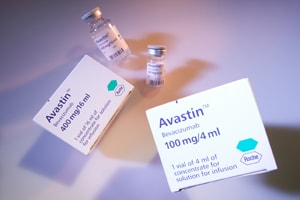 A trio of pharmaceutical companies have joined forces to publicise public attitudes towards access to cancer drugs ahead of the impending demise of the Cancer Drugs Fund.
A trio of pharmaceutical companies have joined forces to publicise public attitudes towards access to cancer drugs ahead of the impending demise of the Cancer Drugs Fund.
Novartis, Roche and Sanofi jointly commissioned a survey that found four in five adults want the NHS to offer levels of access to treatment at least comparable with other countries.
The July poll of more than 2,000 British adults also found that half of respondents said the NHS should be a world leader when it comes to medicines availability and should pay for all treatments, regardless of how much they cost.
The Cancer Drugs Fund is due to be scrapped in early 2014 and the companies say their survey findings increase the pressure on the Government to make clear its plans to ensure access to cancer medicines.
The £600m Fund has been running since April 2011 and pays for cancer drugs that haven’t been recommended by NICE, but which a patient’s clinician wants them to take.
It has so far enabled more than 30,000 patients to have access to medicines they would otherwise have been denied and one charity has already highlighted patient concern about the Fund’s future.
Writing to the health secretary in April, Beating Bowel Cancer’s CEO Mark Flannagan said that the Government’s plan to introduce a value-based pricing (VBP) system for drug reimbursement would render the Fund unnecessary but “will not allay the real fear” patients have over access to treatments.
Commenting on the Novartis, Roche and Sanofi survey, Flannagan said: “The Government gave a pledge that if your doctor thinks that you should have a cancer drug that will help you to live a longer and better life you should get that drug.
“The Cancer Drugs Fund has given better access to vital medicines and improved outcomes for thousands of patients. With it due to end, we fear that patients’ lives will be put at risk. We simply can’t go backwards to a time when cancer patients had to beg for life-extending treatment.”
From a pharma perspective, the Fund has provided a useful funding route for drugs that fail to prove themselves to NICE, and Roche in particular has been a particular beneficiary. Figures released last year showed that its Avastin (bevacizumab) accounted for nearly a quarter of all applications for funding, making it the most requested drug in the Fund.




